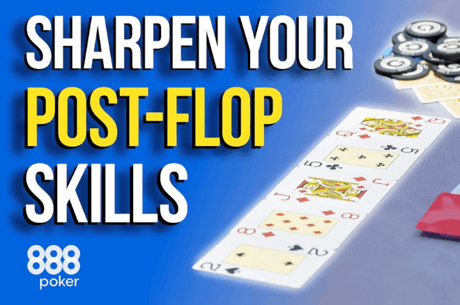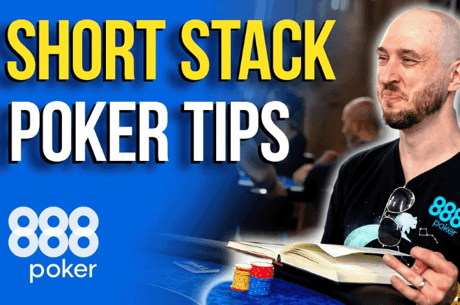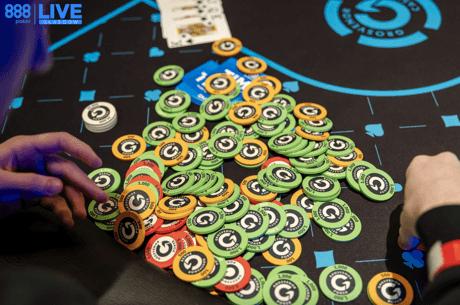10 More Hold'em Tips: Game Selection

Most new players of no-limit hold'em find a version of the game they like right away and stay with it for much of their early poker development. But even within the variant of NLHE there are numerous options and game types — besides the different level stakes you can play — that are worth exploring in order to find the one best suited to your preferences and skill set.
Are you a loose-aggressive player who has trouble remaining patient at the tables? Are you on the tight side and like to minimize your battles, not minding folding a high percentage of hands? Do you prefer a predictable grind marked by relatively few surprises and minimal variance? Or do you enjoy risk-taking and don't mind big bankroll swings?
Here's a look at various types of no-limit hold'em games, including some discussion of relevant factors for each for players trying to decide which game is best for them.
Full Ring
For both cash games and tournaments, "full ring" games usually refer games played at nine-handed tables, sometimes 10-handed in special situations (usually live tournaments). Compared to their short-handed counterparts, full ring games are usually marked by a slower pace and generally tighter play.
With more players involved, hand values tend to go up which translates into most knowledgeable players being stricter with their starting hand selection and also more wary of being up against bigger hands postflop, especially in multi-way pots. In full ring games most players play tight from early and middle positions, only opening up a bit from later positions. Postflop you'll encounter a lot of players who adopt a passive style, which can sometimes be a winning style, depending on the opponents.
If you're a patient, disciplined player who doesn't mind a slower game, full ring will be a preferred format for you.
Short-Handed and Heads-Up
"Short-handed" NLHE usually means six-handed games, while "heads-up" is self-explanatory. Also perhaps obvious is how fewer players at the table translates into a faster pace and more aggressive play.
A short-handed game often will see twice as many hands (or more) dealt per hour than in a full ring game, making for a much faster pace. Meanwhile, good short-handed players are also usually playing a higher percentage of hands, knowing that hand values go down with fewer players involved. There's more bluffing and semi-bluffing, attempts at blind steals from all positions (and resteals back from the blinds), and more action, generally speaking. And with heads-up play, the pace is even faster — as is the action, given that by necessity you're involved in every single hand.
If you're on the restless side, craving action and wanting always to be involved in hands and not watching others play, give short-handed or heads-up a try.
Cash Games and Tournaments
Another distinction worth exploring is the one between cash games and multi-table tournaments. Whereas cash games feature unchanging blinds/antes and the ability to rebuy should you bust, no-limit hold'em tournaments present a more dynamic form of poker with increasing blinds/antes and no chance to replenish your stack should you bust — unless it is a rebuy or re-entry tournament, although even those switch over to a "freezeout" format at some point beyond which there are no more second chances.
Professional players maintain that cash games are a much more reliable profit source than tournaments, mainly because of the relative lack of variance. Tournaments often only pay the top 10-15% of finishers, which means the great majority of players come away losers. But they also provide opportunities for big paydays that well exceed what can be made in a cash game session. Tournaments also often require players learn how to play differently-sized stacks, including (often) short stacks, something that doesn't necessarily concern cash game players as much.
For good discussions of the differences between cash games and tournaments, see the following articles:
Sit-n-Gos
"Sit-n-gos" are like regular multi-table tournaments, although typically they aren't scheduled at specific starting times but only begin once a required number of players are present to play (to "sit" down and then "go" ahead with the tournament). SNGs are often played as single-table tournaments, although you'll find multi-table SNGs as well, especially online.
Just like multi-table tournaments, SNGs can be either full ring or short-handed (or heads-up, even). Your relative level of patience is again another factor that might tip you toward either MTTs or SNGs. The more patient among you will prefer multi-table tournaments, which feature big fields and often take many hours or even days to complete. Sit-n-gos, meanwhile, are designed to finish within a shorter duration, often featuring fast "turbo" structures to help get things over with quickly.
If you're a cash game player who has yet to give tournaments a try, a sit-n-go might be a good first taste of the challenge of dealing with ever increasing blinds and antes.
Online and Live
Some will argue that no-limit hold'em cash games and tournaments are in fact two different kinds of poker entirely. The same argument is often made regarding the distinction between online poker and live poker. Even though many players today play both, there are still numerous differences between the two that cause some to favor one over the other.
Live poker is slower-paced (even when short-handed), and of course doesn't allow multi-tabling as online poker does. It's a more social game in which table talk and physical "tells" play a part. If you're a social person who likes meeting others, that can be a good thing; then again, it's much harder to ignore an unpleasant opponent in a live game than online. Variance actually tends to be higher in live poker, particularly with tournaments, primarily because of the slower pace of play. Meanwhile when playing online you have a lot more freedom over when you play and for how long, while also avoiding the other expenses associated with traveling to a casino or poker room.
Also worth mentioning here is the way online games tend to play a bit tougher at the same limits as their live equivalents. A $1/$2 no-limit hold'em cash game will be the lowest-stakes game in a live room, meaning the player pool will include inexperienced and lesser-skilled players. Meanwhile a $1/$2 NLHE game online is more likely to feature a higher percentage of tough opponents, given that there exist many lower-stakes games (all of the way down to $0.01/$0.02 on some sites) where the weaker players can be found.
If you're strictly an online player, you really should give a live game a try if only to round out your poker experience. Meanwhile those who favor live games might want to give online poker a go as well.
Other Considerations
Finally, once you find the game type that best suits your preferences and skill set, you can be even more selective about which specific games you sit down to play within that category.
With sit-n-gos and tournaments, you can't choose your seat or table, of course. But you can choose between full-ring, short-handed, or heads-up events — especially online, where the options tend to be much greater than live.
You also should spend some time reviewing your results and discovering which buy-in levels tend to bring you the greatest return on investment (or ROI). Higher buy-in tournaments tend to attract a higher percentage of skilled players, while lower buy-ins attract a less experienced and less formidable fields. There may be a buy-in threshold above which you shouldn't play as often, perhaps only to "take shots" now and then, while sticking instead to the buy-ins in which you perform best.
Meanwhile in cash games, once you discover your favorite format and game type, you can and should practice smart table and seat selection, too.
Don't be stubborn when seated in a game where most of your opponents are clearly better than you — get up and find a better game. Also, try if possible to sit to the left of players who are markedly weaker or stronger than you are — versus the weaker players you'll have more chances to profit, and versus the stronger ones you'll play fewer hands from out of position. Playing fewer tables when online might be a good idea as well if you find your win rate decreasing when playing too many at once.
Trial and error should tell you which game type is your most profitable and/or enjoyable to play. That said, unless you actually give other games a try, you'll never know which among the many types of no-limit hold'em might be best for you.
No-limit hold'em players — which is your favorite game type and format, and why?
Also in this series...
- Playing Weak Aces
- Making the Squeeze Play
- The Stop-and-Go
- The Float Play
- Should You Ever Limp-Reraise?
- Stealing and Restealing
- Overbetting
- Light Three-Betting and Four-Betting
- Understanding Expected Value
Ready to take a seat at the table? Put these hold'em tips into practice at 888poker.
Want to stay atop all the latest in the poker world? If so, make sure to get PokerNews updates on your social media outlets. Follow us on Twitter and find us on both Facebook and Google+!










